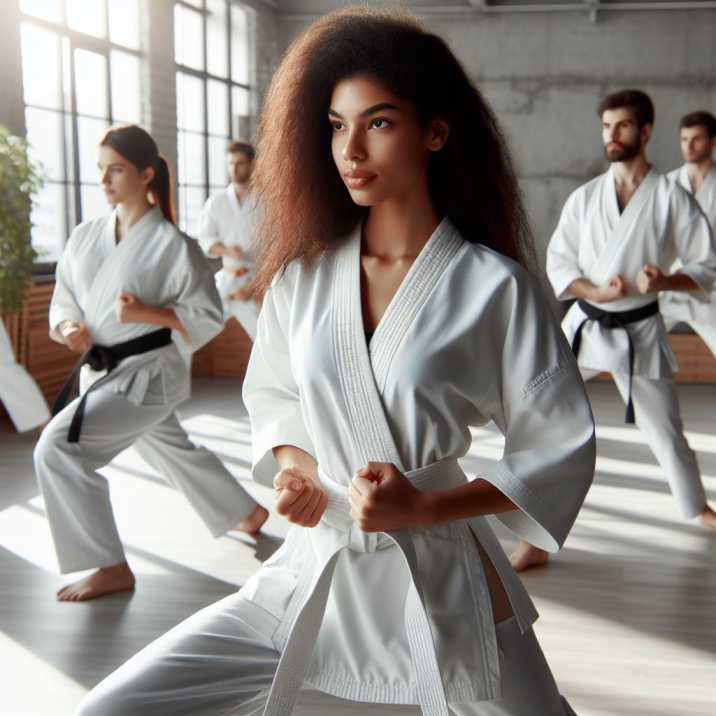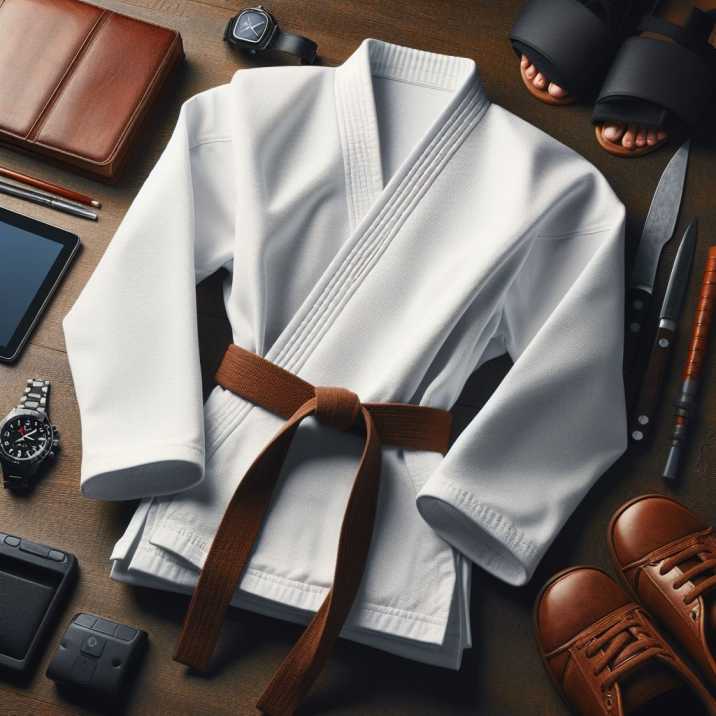Introduction:
Table of Contents
True Cost of Karate
Embarking on a journey to master the art of karate is not just a physical commitment but a financial one as well. In this guide, we’ll delve into the various aspects that contribute to the true cost of karate. From training fees to essential gear, we’ll unravel the financial commitment associated with pursuing martial arts mastery.

The Breakdown: How Much Does True Cost of Karate?
Understanding Training Fees:
The heart of karate practice lies in training sessions. Typically, karate dojos charge monthly fees, and these can vary significantly based on factors such as location, instructor experience, and dojo amenities. On average, beginners can expect to pay anywhere from $50 to $150 per month. High-end dojos or those in prime locations might charge even more.
Additional Costs:
Beyond monthly fees, aspiring karate practitioners should consider additional expenses such as initiation fees, testing fees for belt promotions, and uniform costs. These extra fees can add up, so it’s crucial to factor them into your budget when considering karate as a long-term commitment.
Investing in Essential Gear
Karate isn’t just about training; it’s about having the right gear. From uniforms to protective equipment, here’s a breakdown of the essential items you’ll need and their associated costs:
- Karate Gi (Uniform): A good-quality karate gi can range from $30 to $100. While beginners can start with a basic gi, advanced practitioners might invest in higher-quality, durable options.
- Protective Gear: Depending on the dojo’s requirements, you may need protective gear such as hand wraps, mouthguards, and shin guards. Budgeting an additional $50 to $100 for these items is advisable.
- Training Equipment: Some dojos may recommend or require additional training equipment like focus pads, punching bags, or weapons for advanced training. Costs for these items can vary but generally range from $20 to $200.

Hidden Costs to Consider:
Aside from training fees and gear, there are hidden costs that aspiring karate practitioners might overlook:
- Travel Expenses: If the dojo is not within walking distance, factor in travel expenses such as gas or public transportation costs.
- Competition Fees: For those interested in participating in karate competitions, there may be registration fees, travel expenses, and accommodation costs.
- Private Lessons: While not mandatory, some practitioners opt for private lessons, which can come at an additional cost. Private lessons provide personalized attention and accelerated progress.
Information-based table
| Aspect | Estimated Cost Range |
|---|---|
| Monthly Training Fees | $50 – $150 |
| Initiation Fees | Varies |
| Testing Fees | Varies |
| Karate Gi (Uniform) | $30 – $100 |
| Protective Gear | $50 – $100 |
| Training Equipment | $20 – $200 |
| Travel Expenses | Varies |
| Competition Fees | Varies |
| Private Lessons | Varies |
Note: The estimated cost ranges are general figures and may vary based on location, the specific dojo, and individual preferences.
Conclusion:
In conclusion, true cost of karate extends beyond monthly training fees. To embark on this martial arts journey, aspiring practitioners should consider the additional costs associated with gear, hidden expenses, and potential future investments. Understanding the financial commitment involved enables individuals to plan effectively and pursue karate with dedication and financial preparedness.
FAQs:
- Q: Can I find affordable karate dojos?
- A: Yes, affordable dojos exist, but prices can vary based on location and facilities.
- Q: Are there scholarships for karate training?
- A: Some dojos offer scholarships, and external organizations may provide financial assistance.
- Q: Do I need to buy the most expensive karate gi?
- A: Beginners can start with a basic gi, upgrading as they advance in their practice.
- Q: Are there discounts for family memberships?
- A: Many dojos offer family discounts to make karate training more accessible.
- Q: How often should I expect to pay testing fees?
- A: Testing fees are typically incurred during belt promotion examinations, which vary by dojo.
- Q: Can I practice karate at home without joining a dojo?
- A: While some practice can be done at home, a qualified instructor is crucial for proper learning.
- Q: Are there age restrictions for starting karate?
- A: Most dojos accept students of all ages, but classes may be separated by skill level and age group.
- Q: Do I need special shoes for karate?
- A: No, traditional karate is practiced barefoot, so special shoes are not required.
- Q: How long does it take to advance to higher belt levels?
- A: The time to advance varies, but consistent practice and dedication are key factors.
- Q: Can I rent karate gear instead of buying?
- A: Some dojos offer gear rental options, but having personal gear is recommended for hygiene reasons.
- Q: Are there financial benefits to reaching higher belt levels?
- A: While there are no direct financial benefits, achieving higher belt levels reflects dedication and skill.
- Q: What’s the average duration of a karate class?
- A: Classes typically last one to two hours, including warm-up, technique practice, and cool-down sessions.


